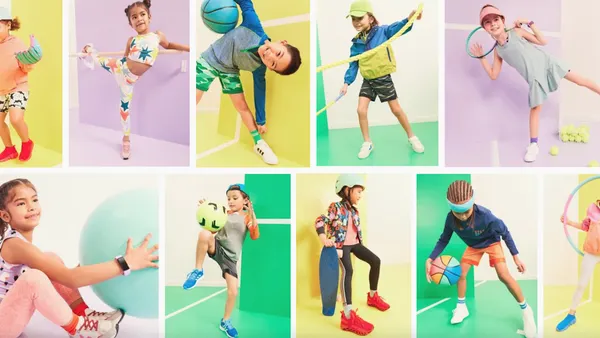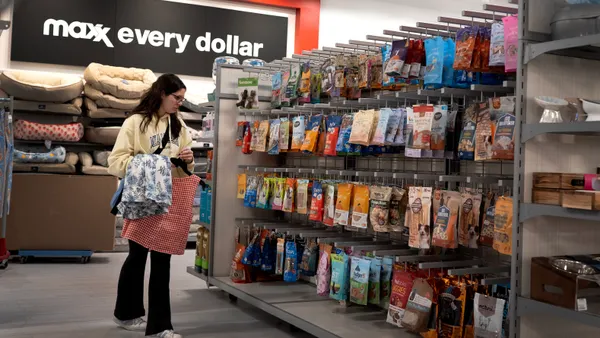Dive Brief:
- Alibaba is piloting its first "FashionAI" concept store at the Hong Kong Polytechnic University, according to Alizila, a news site operated by Alibaba. The temporary store only offers clothing from U.S. fashion brand Guess and is open for three days, July 5-7. Guess plans to use FashionAI technology in its stores in the near future, he said, focusing first on mainland China and Hong Kong.
- The store features smart mirrors that show product information about garments shoppers are touching or picking up cued by RFID technology in the clothing racks. The device makes personalized mix-and-match suggestions and shows where the items are in the store. Shoppers use the smart mirror to add items to a virtual shopping cart so they don’t have to carry the garments and store staff brings those items to a fitting room. Smart mirrors in the fitting room can be used to update the sizes and colors of selections.
- The FashionAI concept is integrated with Alibaba’s Taobao e-commerce platform, and upon entering, shoppers check in with a mobile Taobao ID code. Customers can choose a face scan for a more personalized experience, and real-time analytics allow staff to move faster, and track inventory more accurately, the company said.
Dive Insight:
The integration of physical store with e-commerce takes another step toward reality with Alibaba’s FashionAI concept store, which incorporates some of the most advanced technology yet to be tried by a retailer. Other examples include Walmart’s retail tech lab Store No. 8, which recently has been exploring the boundaries of virtual reality. A sneaker store in Vancouver, Canada, called Six Hundred Four, combines an online virtual store with the physical store, which is viewed either in an online 3D experience or in person. An e-commerce shopping cart is used for both.
The potential to tap the online market for fashion is significant. Forrester has reported that the online apparel market has grown by a compound annual growth rate of 14% since 2012. A survey from CPC Strategy said 52% of apparel shoppers who had purchased online had shopped at Amazon.
A barrier to online apparel sales has always been the inability to "try-before-you-buy" although sales have been increasing dramatically in spite of this. Virtual retail reality and Alibaba’s FashionAI will help customers increase their comfort level with apparel e-commerce.
Investments made in the last seven years have helped build the system’s capabilities in recognizing clothing and spotting fashion trends, Alibaba Group Vice President Zhang Zhuoran said in the Alzila article. This enables it to go beyond the recommendation of individual items to suggesting mix-and-match options. “This is a major step. This would be the equivalent of consumers having their own personal stylists,” he said.
The FashionAI initiative being developed by an Alibaba New Retail research team draws on technologies that include machine learning and computer vision to “learn” from consumers, designers and fashion aficionados within the company’s ecosystem, Alzila reported. Images of more than 500,000 outfits assembled by Taobao stylists are included, as well as insights shared by brands.
For the future, Alibaba plans a “virtual wardrobe” feature for its Mobile Taobao app. By using it, shoppers will be able to look at garments they’ve tried on in-store, as well as the mix-and-match recommendations from different brands, including items from other merchants on Alibaba’s two shopping sites, Taobao and Tmall.
Guess expects to benefit from the FashionAI concept by enhancing the in-store customer experience, as well as informing business decisions, such as product selection and inventory management, to dressing window display mannequins, the company said in a statement.












